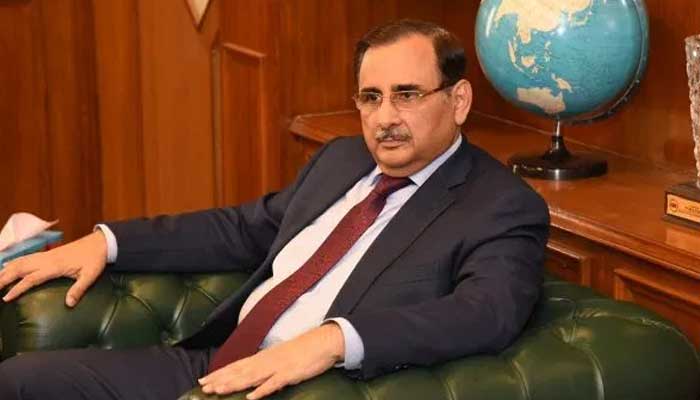FPCCI warns govt against ‘too much’ reliance on IMF’s feed
KARACHI: The Federation of Pakistan Chambers of Commerce and Industry (FPCCI) on Saturday expressed concerns over the government’s reliance over the International Monetary Fund for external support that it says hinders inflation easing mechanism in the country.
“Continuous borrowing from IMF for financial assistance brought waves of price hikes,” FPCCI President Anjum Nisar said in a statement. “Inflation is already hitting high due to continuous rise in oil prices and depreciation of local currency.”
Nisar said the IMF loan has devastating effects on the economy. With more taxes and increased rates of utilities, cost of production escalates, rendering Pakistani exports uncompetitive in the global market.
FPCCI president said inflation above 6 percent will hurt growth.
“A careful strategy is required to keep inflation in control.”
Inflation has already surpassed 9 percent in September as opposed to rate of 1.2 percent considered as a sign of stability across the world amid dropping food and energy prices. Low export growth, limited foreign exchange reserves, documentation of economy and higher food inflation are still major challenges to the economy.
Over the past three months, prices of fresh vegetables, fruits and meat have increased massively while average inflation during the January witnessed 12-year high at 14.6 percent this year – the highest inflation not only in comparison with the developed economies but also with emerging economies.
The most dominating push to inflation came from non-food-non-energy (core inflation) component that typically represents the underlying demand pressures on the economy. The core inflation, measured by excluding volatile food and energy prices, was recorded at 8.5 percent year-on-year.
It has been steadily rising for a couple of months despite tightening of the monetary policy.
FPCCI president said the Pakistan Bureau of Statistics calculates the inflation rate by measuring the prices of a basket of 480 common goods and services, such as the cost of education, house rent, utility bills and food and beverages. “An increase in the inflation rate means the prices of goods and services have increased.”
According to reports, higher food item prices such as tomatoes, wheat and potatoes pushed the inflation up during September. The rural inflation has been higher in September as compared to urban, as it was increased by 11.1 percent as compared to urban inflation of 7.7 percent.
“The high inflation environment affects decision making of all economic agents in economy, like investors, savers, consumers and producers through uncertainty about the expected payoffs from their decisions,” said Nisar. “Moreover, persistently high inflation also causes erosion of the value of the local currency in terms of foreign currencies. Such uncertainties, in turn, have adverse implications for economic activities.”
FPCCI president said low inflation helps economic agents predict outcome of their economic decisions with fair level of certainty. “Especially, producers follow their plans for business expansion with more confidence and new investment is undertaken in the expectation of predictable returns.”
-
 Gwyneth Paltrow Discusses ‘bizarre’ Ways Of Dealing With Chronic Illness
Gwyneth Paltrow Discusses ‘bizarre’ Ways Of Dealing With Chronic Illness -
 US House Passes Resolution To Rescind Trump’s Tariffs On Canada
US House Passes Resolution To Rescind Trump’s Tariffs On Canada -
 Reese Witherspoon Pays Tribute To James Van Der Beek After His Death
Reese Witherspoon Pays Tribute To James Van Der Beek After His Death -
 Halsey Explains ‘bittersweet’ Endometriosis Diagnosis
Halsey Explains ‘bittersweet’ Endometriosis Diagnosis -
 'Single' Zayn Malik Shares Whether He Wants More Kids
'Single' Zayn Malik Shares Whether He Wants More Kids -
 James Van Der Beek’s Family Faces Crisis After His Death
James Van Der Beek’s Family Faces Crisis After His Death -
 Courteney Cox Celebrates Jennifer Aniston’s 57th Birthday With ‘Friends’ Throwback
Courteney Cox Celebrates Jennifer Aniston’s 57th Birthday With ‘Friends’ Throwback -
 Camila Cabello Shares Update On Her Hair Two Years After Going Platinum
Camila Cabello Shares Update On Her Hair Two Years After Going Platinum -
 Prince William Steps In To Help Farmer's Awareness Mission
Prince William Steps In To Help Farmer's Awareness Mission -
 Queen Elizabeth Tied To Andrew's Sexual Abuse Case Settlement: Report
Queen Elizabeth Tied To Andrew's Sexual Abuse Case Settlement: Report -
 Mark Ruffalo Urges Fans To Boycott Top AI Company Boycott
Mark Ruffalo Urges Fans To Boycott Top AI Company Boycott -
 Prince William Joins Esports Battle In Saudi Arabia
Prince William Joins Esports Battle In Saudi Arabia -
 Princess Beatrice, Eugenie Are Being Ripped Apart: ‘Their Relationship Is Fully Fractured’
Princess Beatrice, Eugenie Are Being Ripped Apart: ‘Their Relationship Is Fully Fractured’ -
 Arden Cho Shares Update On Search For ‘perfect’ Wedding Dress Ahead Of Italy Ceremony
Arden Cho Shares Update On Search For ‘perfect’ Wedding Dress Ahead Of Italy Ceremony -
 Ariana Madix Goes Unfiltered About Dating Life
Ariana Madix Goes Unfiltered About Dating Life -
 Prince William Closes Saudi Arabia Visit With Rare Desert Shot
Prince William Closes Saudi Arabia Visit With Rare Desert Shot




